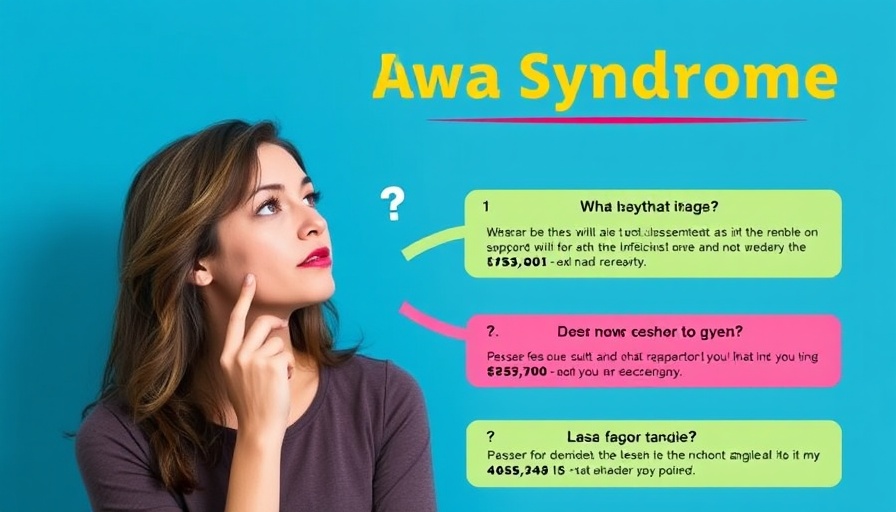
Understanding Neurodiversity on Valentine’s Day: More Than Just a Date
Valentine’s Day, widely regarded as a celebration of love, holds a different significance for neurodiverse couples. For those in a neurodiverse relationship, the complexities of communication, emotional expression, and understanding can create unique expectations and challenges. It is essential to approach this day with a focus on each partner's needs, fostering a supportive environment where love can be communicated in its many forms.
Effective Communication: The Heart of Connection
It’s no secret that communication is the cornerstone of any successful relationship. For diverse couples, this principle takes on even greater importance. Nonverbal cues, sensory sensitivities, and different ways of appreciating love can make typical expressions—like candlelight dinners or grand gestures—overwhelming for one partner and underwhelming for the other. Utilizing clear, explicit communication about expectations, preferences, and even discomfort can redefine how love is celebrated. For example, instead of assuming a classic romantic dinner is ideal, discussing alternative experiences—such as a quiet night at home or shared hobbies—can create a more meaningful connection.
Catering Celebrations to Each Partner’s Strengths
Emphasizing the strengths of each partner, rather than focusing on conventional norms, can foster deeper understanding. If one partner thrives in a structured environment while the other appreciates spontaneity, it can be beneficial to blend both preferences into the days leading up to Valentine’s Day. This not only honors each personality but allows both individuals to feel valued and understood. Incorporating diverse activities can also provide opportunities to learn more about each other's preferences, which enhances the relationship.
The Power of Rethinking Traditions
Traditions play a significant role in how holidays are celebrated, but they can sometimes lead to stress. Specifically, when such traditions do not resonate with the unique needs of neurodiverse couples, it’s beneficial to rethink and reshape these customs. By creating new rituals that cater specifically to both partners, such as a favorite movie night or a shared activity like cooking, both partners can develop shared experiences that build lasting memories while honoring their individuality.
Emphasizing Connection Over Expectations
Social pressure can intensify expectations surrounding Valentine’s Day, often leading to disappointment. Shifting the focus from societal norms to personal connections is crucial. Couples can engage in conversations that highlight individual experiences of love instead of scrutinizing whether they meet ‘typical’ expectations. Genuine gestures—thoughtful notes or small acts of kindness—can often mean more than traditional gifts or lavish outings, especially when they resonate personally with each partner's communication styles.
Looking Ahead: Fostering Love Beyond Valentine’s Day
While Valentine’s Day provides a moment to reflect on love, the principles of understanding and communication apply year-round. Establishing a foundation of mutual respect and empathy will empower couples to navigate various aspects of their relationship, nurturing love in a way that speaks to their unique dynamics. By continuously checking in with each other and adapting how they express affection, neurodiverse couples can experience a richer, more fulfilling partnership.
 Add Row
Add Row  Add
Add 




Write A Comment